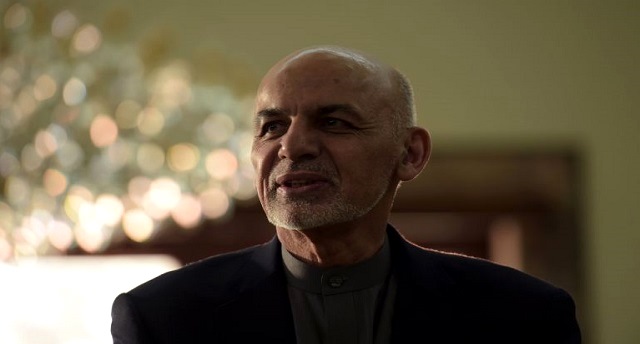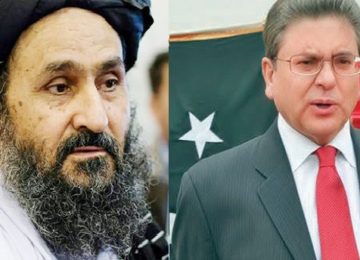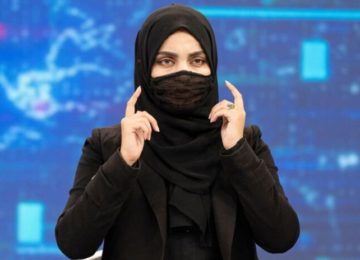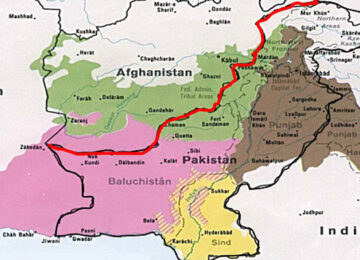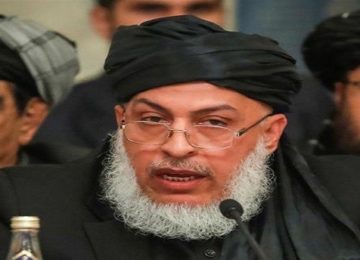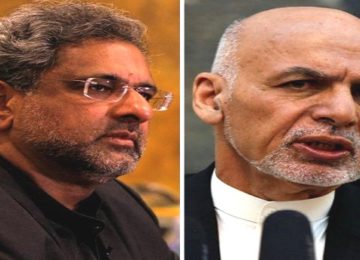As President Ashraf Ghani inaugurates the Kabul Process 2 (KP2) conference Thursday in the presence of nearly two dozen foreign dignitaries, two grave challenges stare him in the face; an increasingly impatient international community, particularly the European Union, and the omnipresent terrorist networks – epitomized by the obscurantist Taliban and the enigmatic Daesh terrorists. Terrorists have continued to deliver one blow after the other to all possible
The KP2 originated as an idea in Kabul itself to upstage all other processes – Quadrilateral Coordination Group (QCG), and the Moscow Process inter alia and push it as an indigenous effort for peace and reconciliation because – in the words of Hekmet Karzai, the deputy foreign minister – even the QCG failed in achieving a single of the 26 set benchmarks for peace and reconciliation.
Ghani faces the daunting task of putting on table a roadmap that can address growing concerns abroad about the sustainability of his government as well as the absence of a demonstrable medium to long term reconciliation and development plan.
Regardless of the aggressive approaches by the Trump administration, the patience of most of the European Union countries seems to have worn thin. If some interactions with EU envoys were an indicator, they may deliver a categorical, chastising message to the Ghani administration. Several days ahead of the KP2, European diplomats had begun mulling as to whether or not they should convey to Kabul to “stop clubbing all strategies to counter-terrorism only.” The government has to put on table at least something with which Taliban can relate too. We need some form of a roadmap for future like amnesty for reconcilable Taliban, allowing return of their families and reintegration, opined a West European special envoy to Afghanistan.
As usual Pakistan, represented by the foreign secretary Ms Tehmina Janjua, is likely to figure – directly or otherwise for its presumed but overstated “key role” in Afghanistan’s future. The delegation may encounter some hostile rhetoric from Afghan officials.
I will present detailed peace offer to Taliban and #Pakistan on behalf of the #Afghan people. We wish to march toward a lasting peace in #Afghanistan and in the region!
Such hostility has been part of an orchestrated and long-drawn attempt to keep the focus on Pakistan for all the wrong reason; to project it as the spoiler, unwilling to cooperate.
Yet, perhaps this may find an external counter through at least the European Union; unless things change overnight, one of the likely messages – if all EU members are able to evolve consensus on it – will be to convince President Ghani that ” if you are even partially dependent on Pakistan for the future path, then tone down the rhetoric against it. You cant continue bashing that country and then expect it to help you too, underscored another envoy.
EU is also likely to put across the conference that “Afghanistan is not just foreign donors’ problem. Its an Afghan problem and Afghans themselves have to find solutions to its problems.”
The European Union stands committed to Afghanistan but don’t bank on it for an exclusively Counter-terrorism (CT) strategy only. Try to create a balance between the emphasis on CT and the work needed to create space for reconciliation.
The KP2 may also resonate with a caution against the increasing deployment of military means against insurgents. “If you want to weaken the Taliban through the military approach and encourage Americans into more fighting, it will most likely be counter-productive,” argued another envoy. We are telling them that you cannot take one thing first and then another. May be you have to do things simultaneously – Fight and Talk. But for that you need a plan keeping in view that there are conditions also for the Afghan government just as the Trump administration has spoken about “conditions-based” engagement in Afghanistan.
Among the conditions, beside the roadmap to peace are issues such as elections to the Parliament (the current parliament is its eighth year, literally three years beyond its mandate. The EU also wants Kabul to increase its legitimacy through an inclusive process for the way forward through broadening of its base.
Both Ghani and CEO Dr. Abdullah Abdullah “must know their red lines,” suggested a senior diplomat. Right now Taliban don’t trust Ghani, neither does Ghani have anything on offer, he pointed out.
The KP2 may prove a watershed not only for the Ghani administration but also for the Pak-Afghan relations. But geo-political complexities may once again come in the way of rationally crafted policy positions.
This article originally appeared in Daily Times on February 28, 2018.
Disclaimer: Views expressed on this blog are not necessarily endorsed or supported by the Center for Research and Security Studies, Islamabad.



